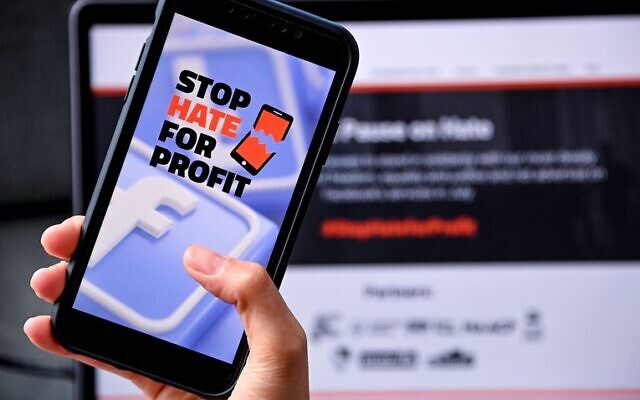Facebook ‘failing miserably’ on hate speech
Calling on Facebook to improve its handling of racist and violent content, hundreds of companies have suspended their Facebook advertising for one month as part of a new campaign.

WITH the NSW Jewish Board of Deputies’ CEO Vic Alhadeff decrying the proliferation of hate speech on Facebook as “appalling”, Australian Jewish leaders have welcomed the decision made by major global brands to suspend their Facebook advertising for the month of July as part of the Stop Hate for Profit boycott.
Calling on Facebook to improve its handling of racist and violent content, hundreds of companies including Coca-Cola, Starbucks and Toyota have signed on, as well as Australian companies Ausdroid Tech News and Puma Australia.
The boycott, initiated by advocacy groups such as the Anti-Defamation League, Colors of Change and National Association for the Advancement of Colored People, sends a “very important message” by raising awareness of this issue and impacting Facebook’s bottom line, said Alhadeff.
One particular difficulty, he noted, lies in having offensive content removed.
In March, a post shared on an HSC discussion group posed the question, “What is the worst disease?” with three options presented: COVID-19, people who identify as LGBTIQ+, and Jews/Israelis.
“How about all of them” and “the bloody Jews” were proposed as answers in the comments.
When a Jewish HSC student flagged the material as hateful content, Facebook said it did not violate community standards.
Approached by The AJN, Facebook reaffirmed its position, noting the example does not breach the company’s hate speech policies as Facebook allows critical discussion of ideologies.
To this, Alhadeff said the example “renders farcical Facebook’s claim that it doesn’t allow hate speech to be directed at people. Its suggestion that classifying a particular group of people as a disease can somehow be considered ‘critical discussion of ideologies’ is beyond offensive”.
Deploring how Facebook has “failed miserably” to stamp out hate speech, Anti-Defamation Commission chairman Dvir Abramovich hopes 200 companies joining the boycott will “convince Mark Zuckerberg to do more to ensure his company does not give access to the poisonous preachers of prejudice … Facebook must take the honourable path and not permit their site to be hijacked and to become the engine of rampant intolerance and racism”.
CEO of the Online Hate Prevention Institute and honorary associate at La Trobe University, Dr Andre Oboler, lamented how Facebook is still “falling short” by failing to classify Holocaust denial as hate speech.
In response to the boycott, a Facebook company spokesperson said the platform’s rules “have long prohibited hate and attacks against people based on things like race, ethnicity or religion … We’ll continue to improve our technologies, evolve our policies, and work with experts to identify and remove hate from our platform”.
This improvement has seen Facebook introduce artificial intelligence to root out hateful content, and announce plans for a new oversight board – the members of which will exercise independent judgement on content moderation.
While co-CEO of the Executive Council of Australian Jewry Peter Wertheim applauded Facebook for taking these “welcome steps”, he noted the company has not yet done enough to combat the problem.
“We fully support demands that Facebook should appoint someone with proven credentials in fighting hate speech to its top level of decision makers, submit to regular third-party audits of hate and misinformation, and remove the political exemptions that have allowed some public figures to bypass hate speech rules,” remarked Wertheim.
As for the boycott itself, Wertheim expressed scepticism over the “effectiveness of an advertising boycott as a tactic”.
Similarly apprehensive, Oboler deemed the campaign “concerning”.
“The boycott is not civil society leadership but rather grandstanding that aims to exploit the public fears and anger about racism more broadly,” he said.
“The demands behind the current boycott, including for Facebook to use its own judgement to censor political campaigns, is in fact deeply dangerous for democracy.”

comments